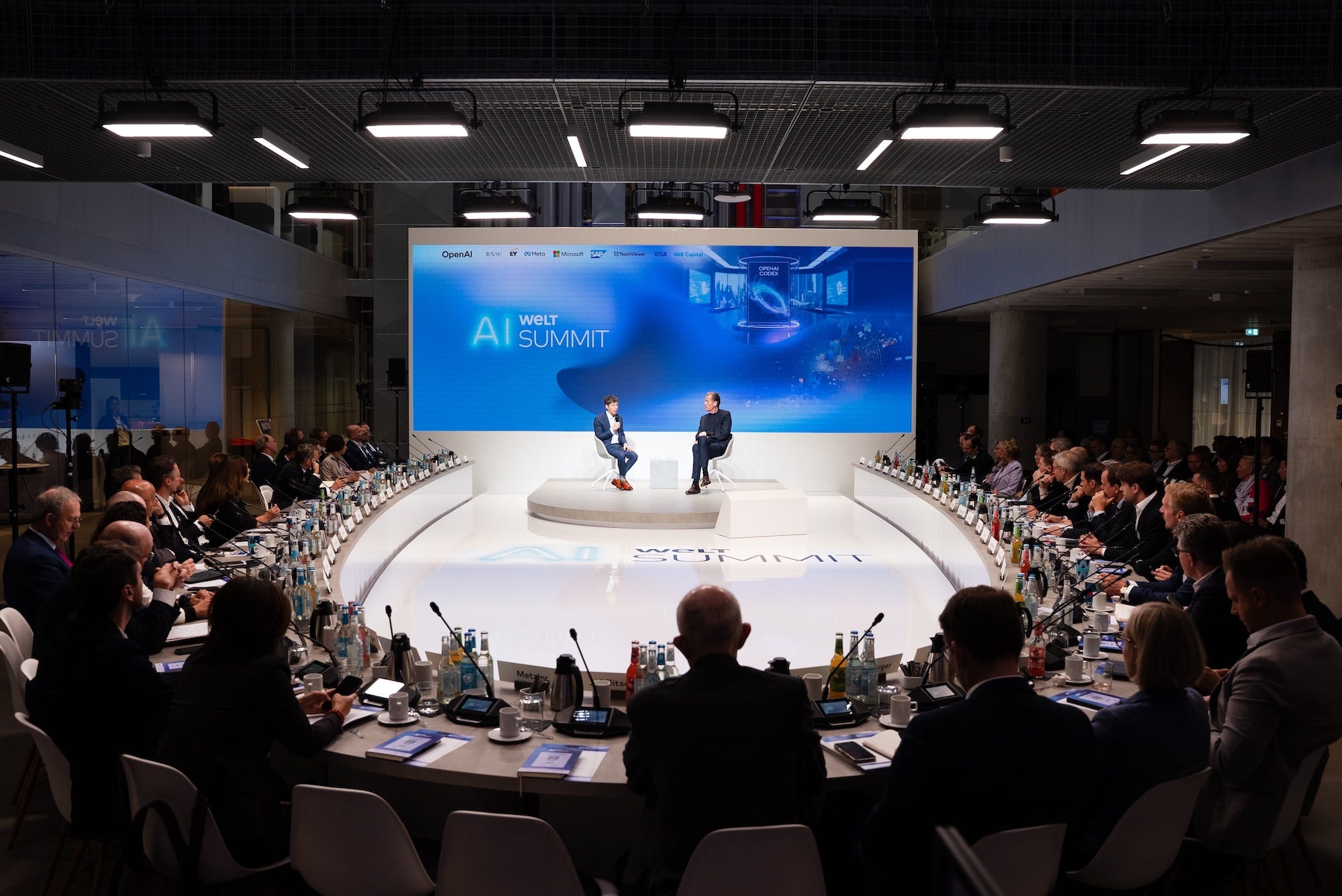
Dominik Tryba/Welt
- I flew 2,950 miles to Berlin for the Welt AI Summit — two days of discussions on the future of AI.
- OpenAI’s Sam Altman, Palantir’s Alex Karp, and the head of Germany’s DOGE-like ministry spoke.
- My main takeaway was that Germany needs to scale back regulation so that new tech can flourish.
This week, Axel Springer hosted business leaders and politicians to debate the present and future of artificial intelligence.
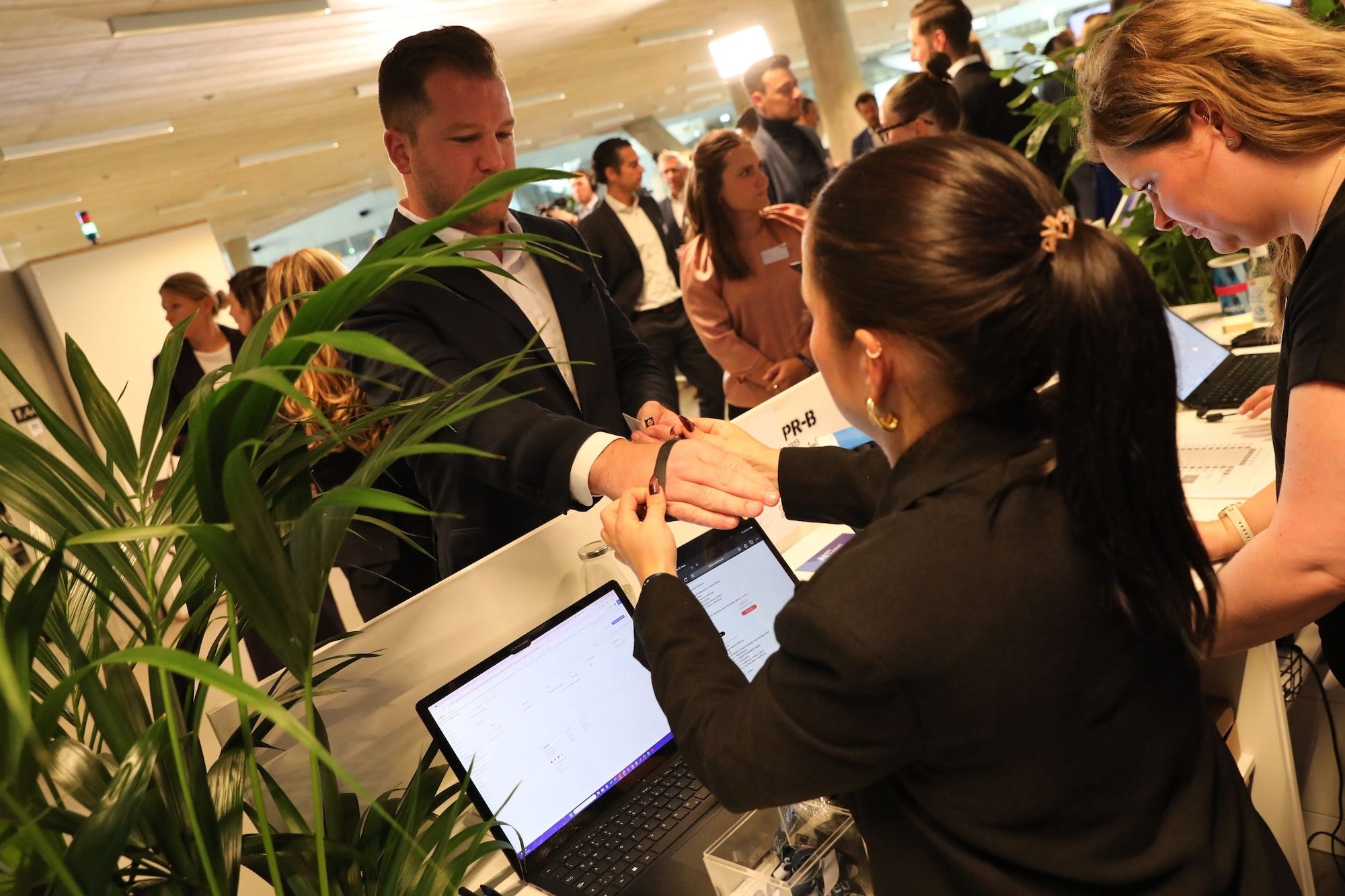
Welt
Full disclosure: Axel Springer and our emcee, CEO Mathias Döpfner, own Business Insider.
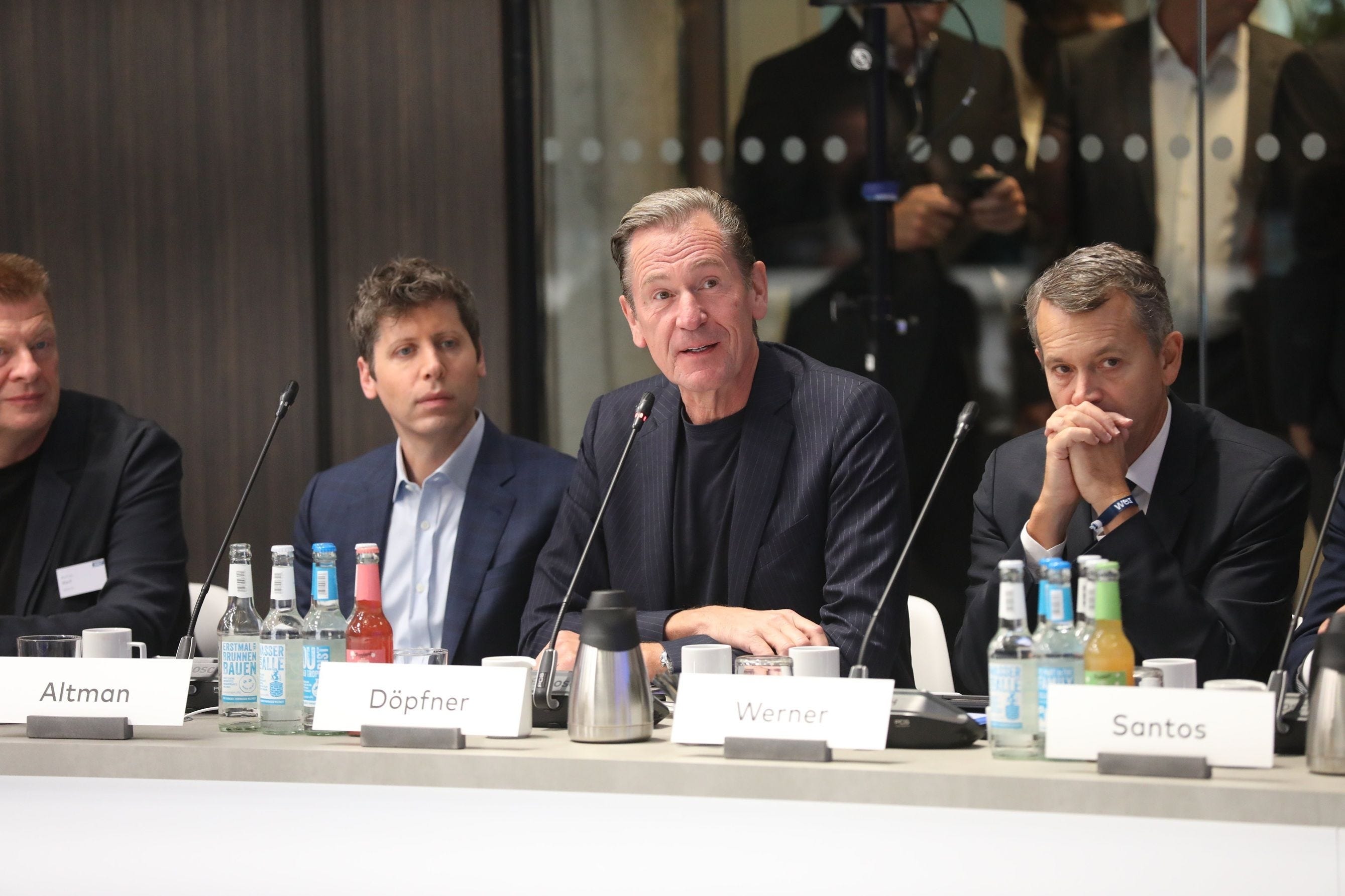
Welt
The sleek, futuristic set, ringed with microphones, notebooks, and coffee, made me feel like I was on the bridge of a starbase.

Jakob Hoff/Welt
OpenAI’s Sam Altman may run a startup, but Berlin greeted him as a visiting head of state.
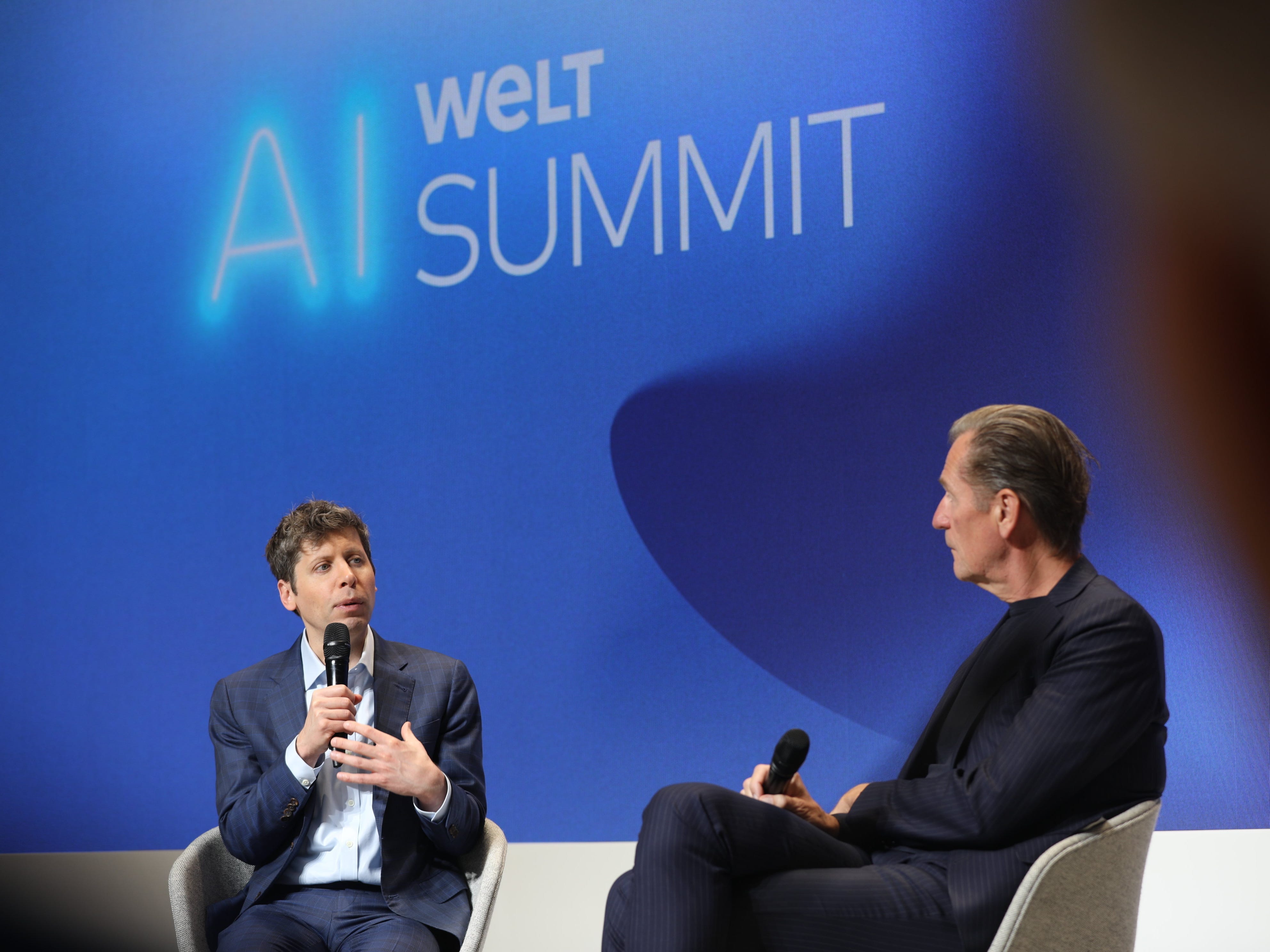
Axel Springer
He’d brought good news. OpenAI said Wednesday it will partner with German software giant SAP to enable millions of the country’s public sector employees to use ChatGPT.
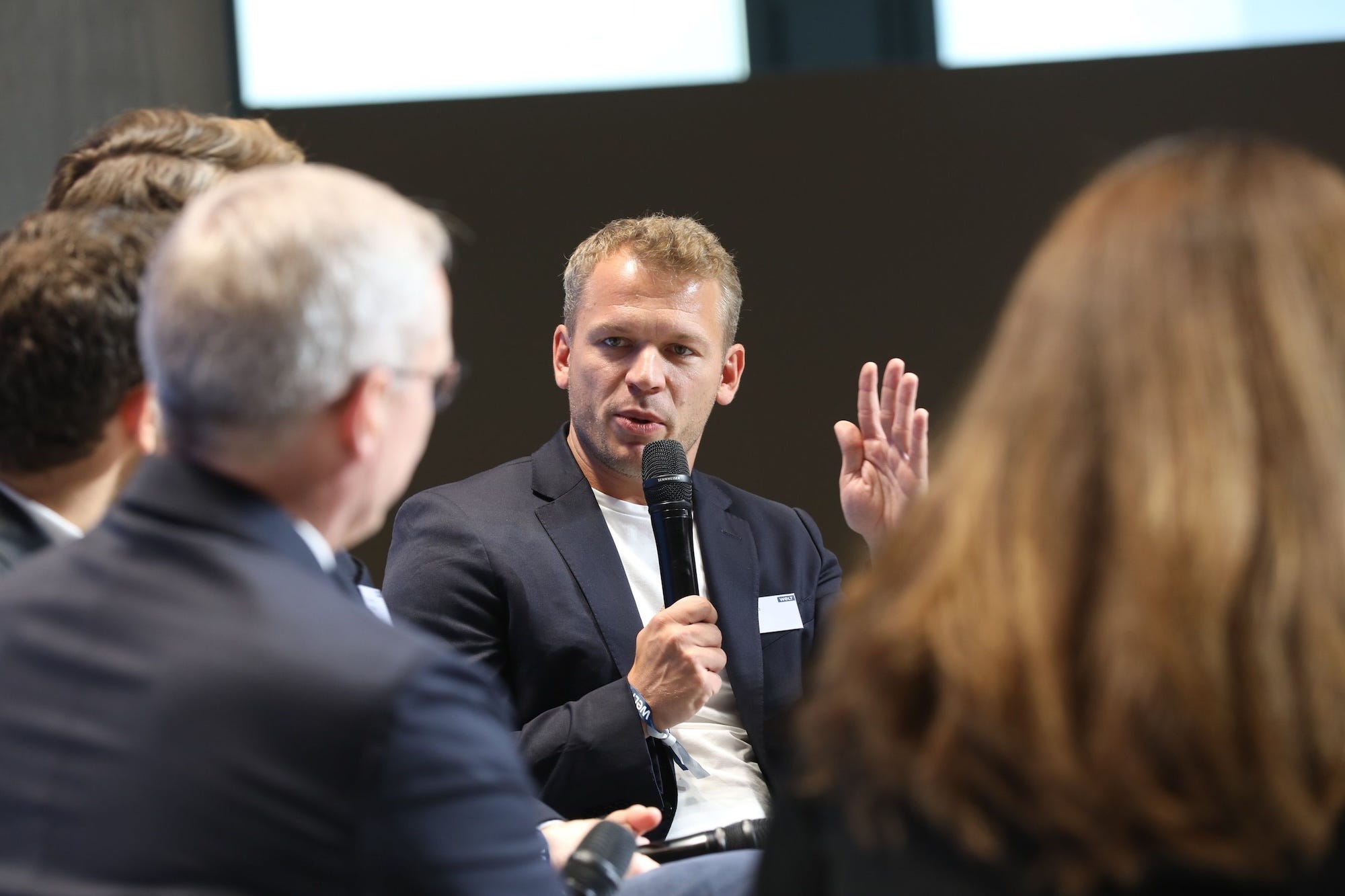
Welt
Germany is OpenAI’s fifth-largest market, and “virtually all” Germans ages 18 to 24 use ChatGPT, Altman said.

Jakob Hoff/Welt
Döpfner recited a popular criticism of Europe that it regulates new technology before it can take root. He asked if a more iterative approach to rule-making made sense.
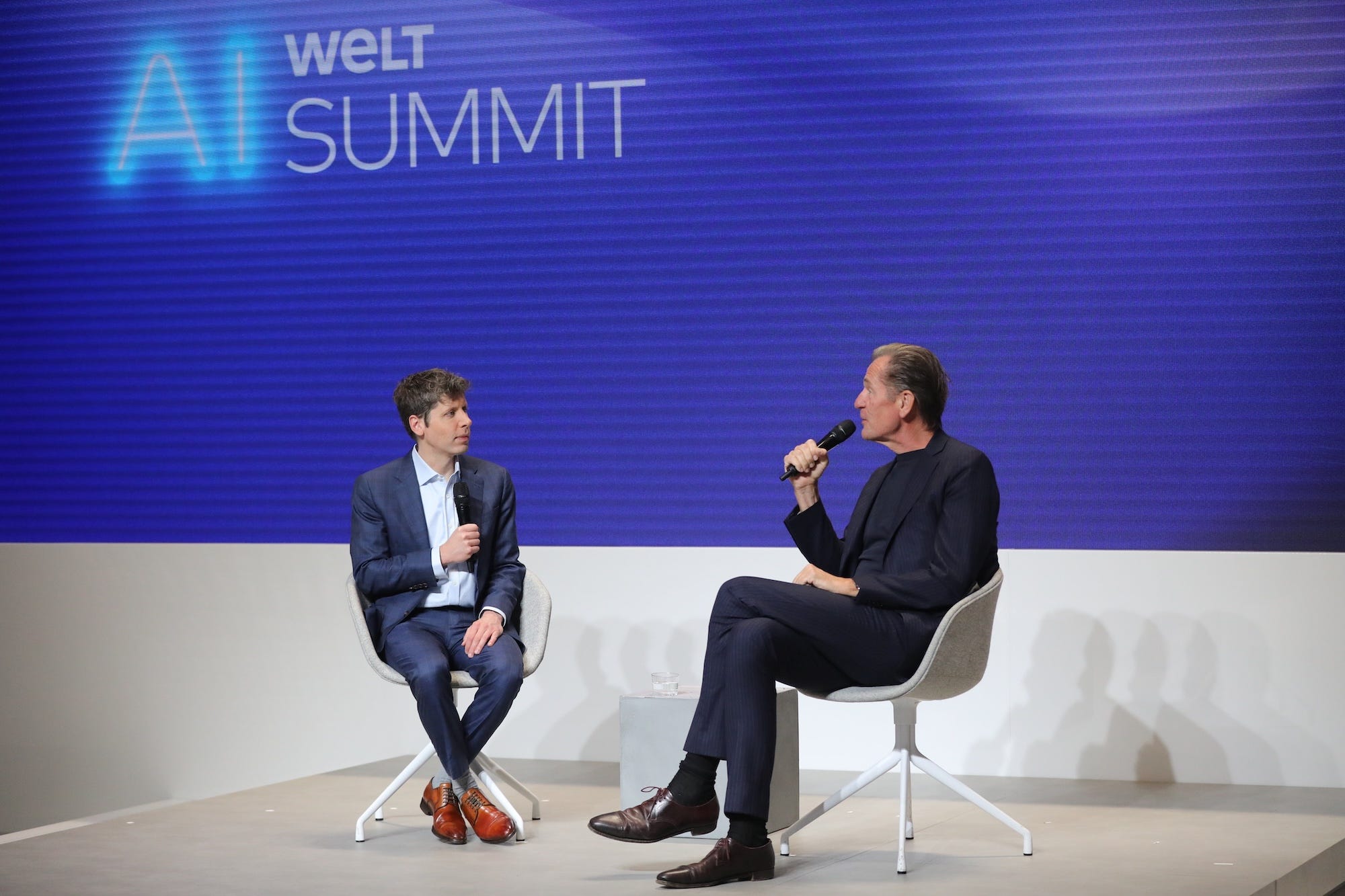
Jakof Hoff/Welt
“The tech is moving so fast,” Altman said, “that trying to write the regulation now and have it be correct over decades to come is an impossible task.”
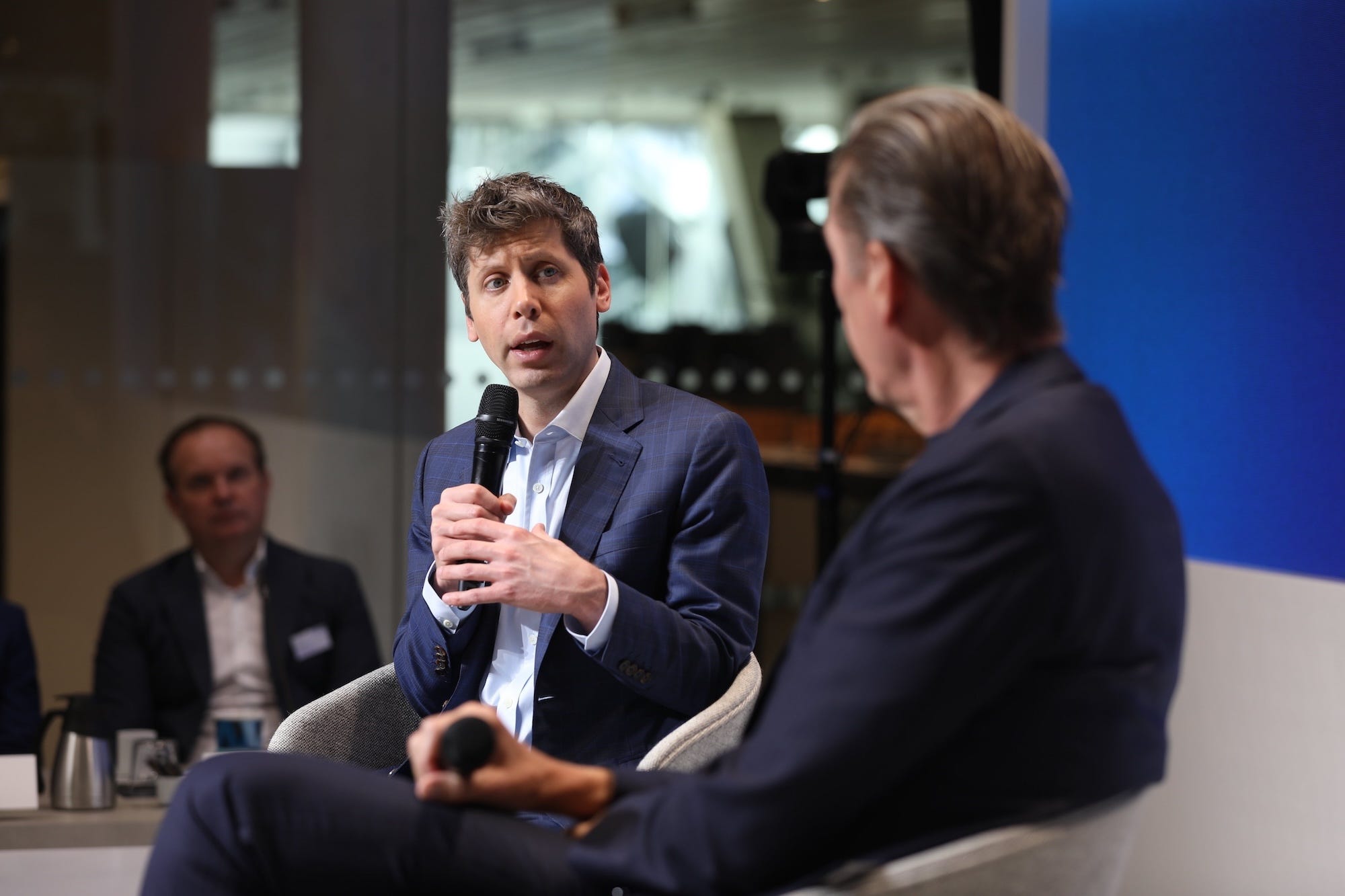
Jakob Hoff/Welt
Altman proclaimed fusion the “end state of power on earth.”
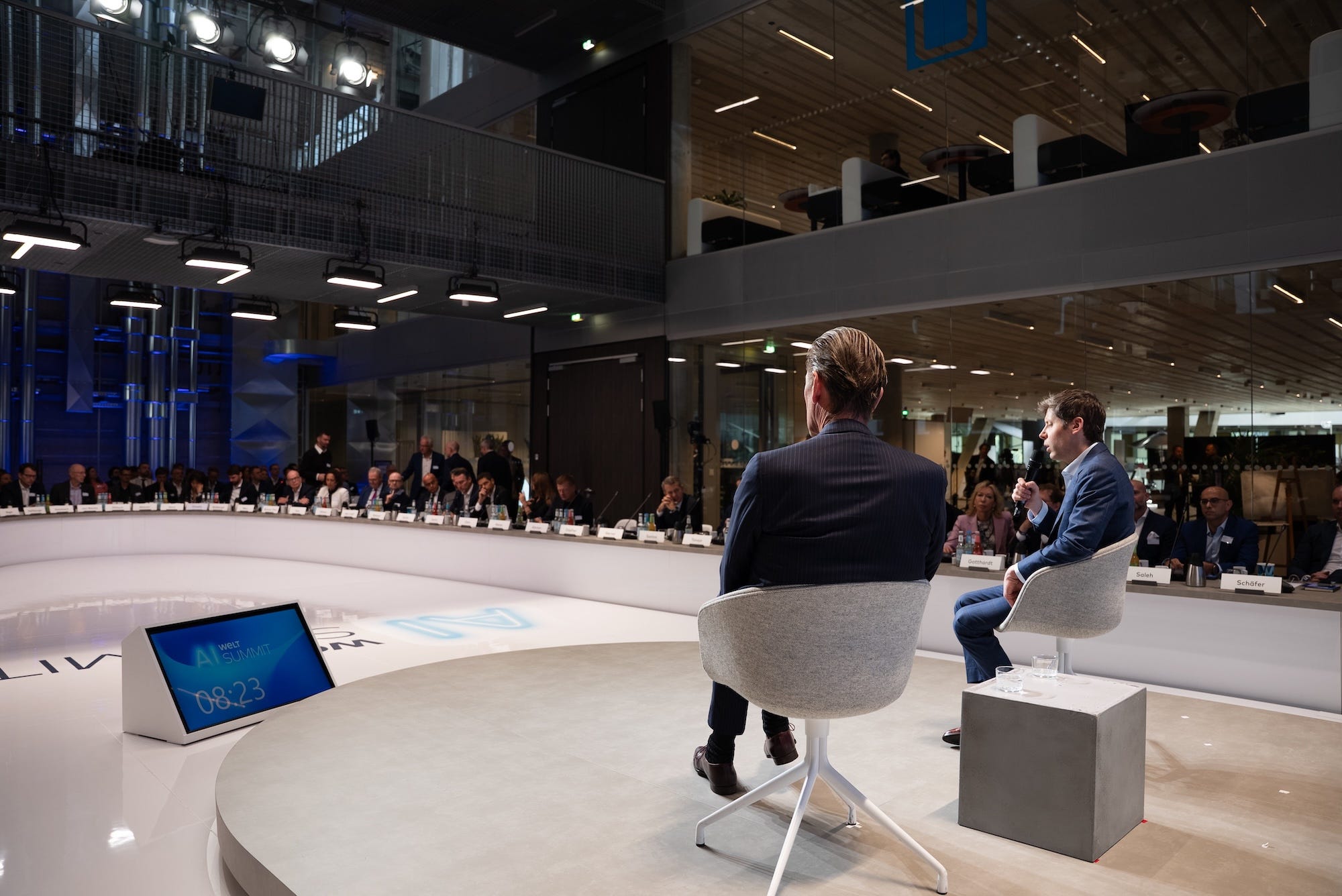
Dominik Tryba/Welt
And he forecast a flood of small to midsize businesses run by solo founders and ChatGPT.
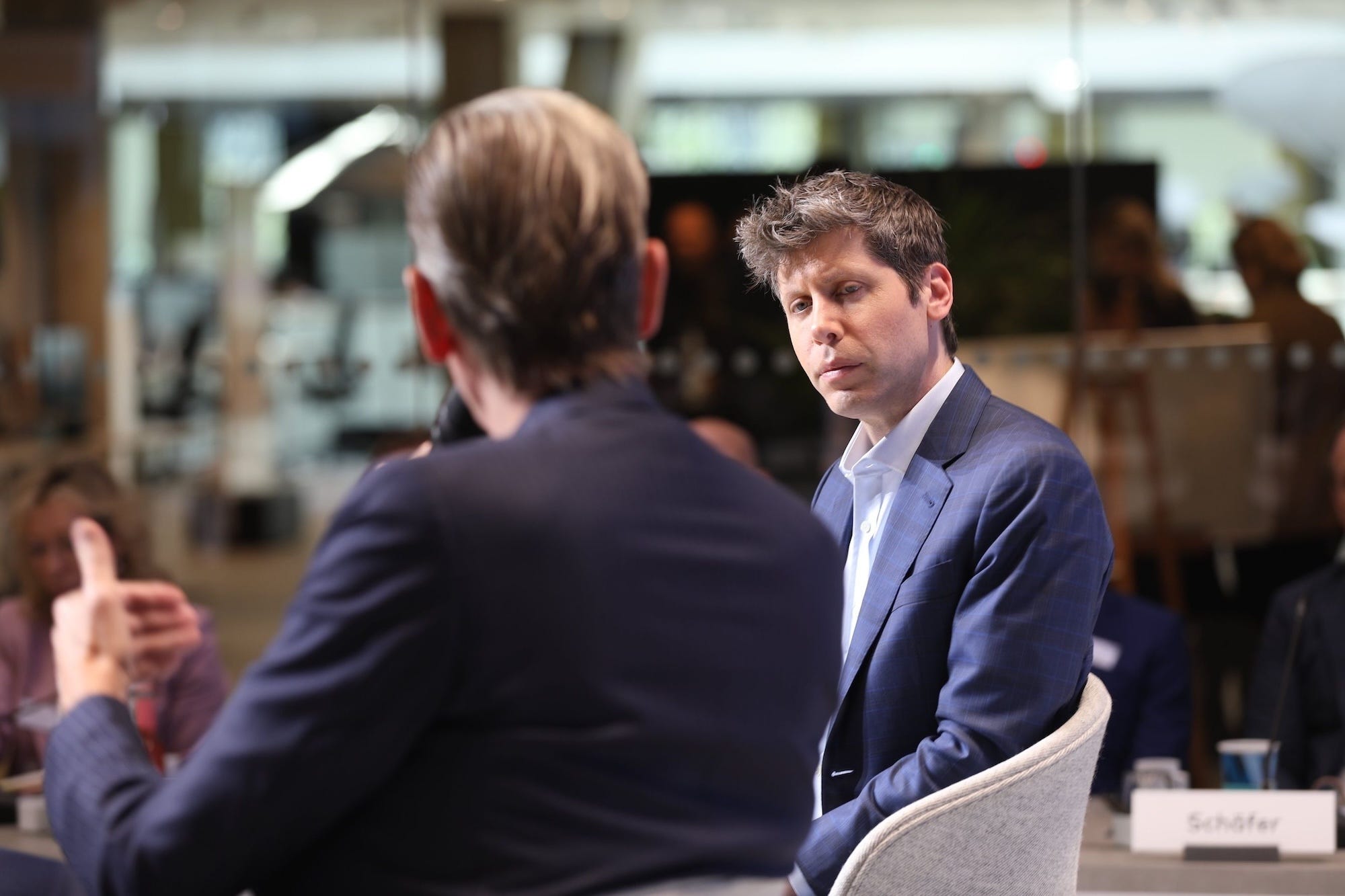
Jakob Hoff/Welt
As their talk wrapped up, I slipped into the hallway to try to catch Altman on his way out.
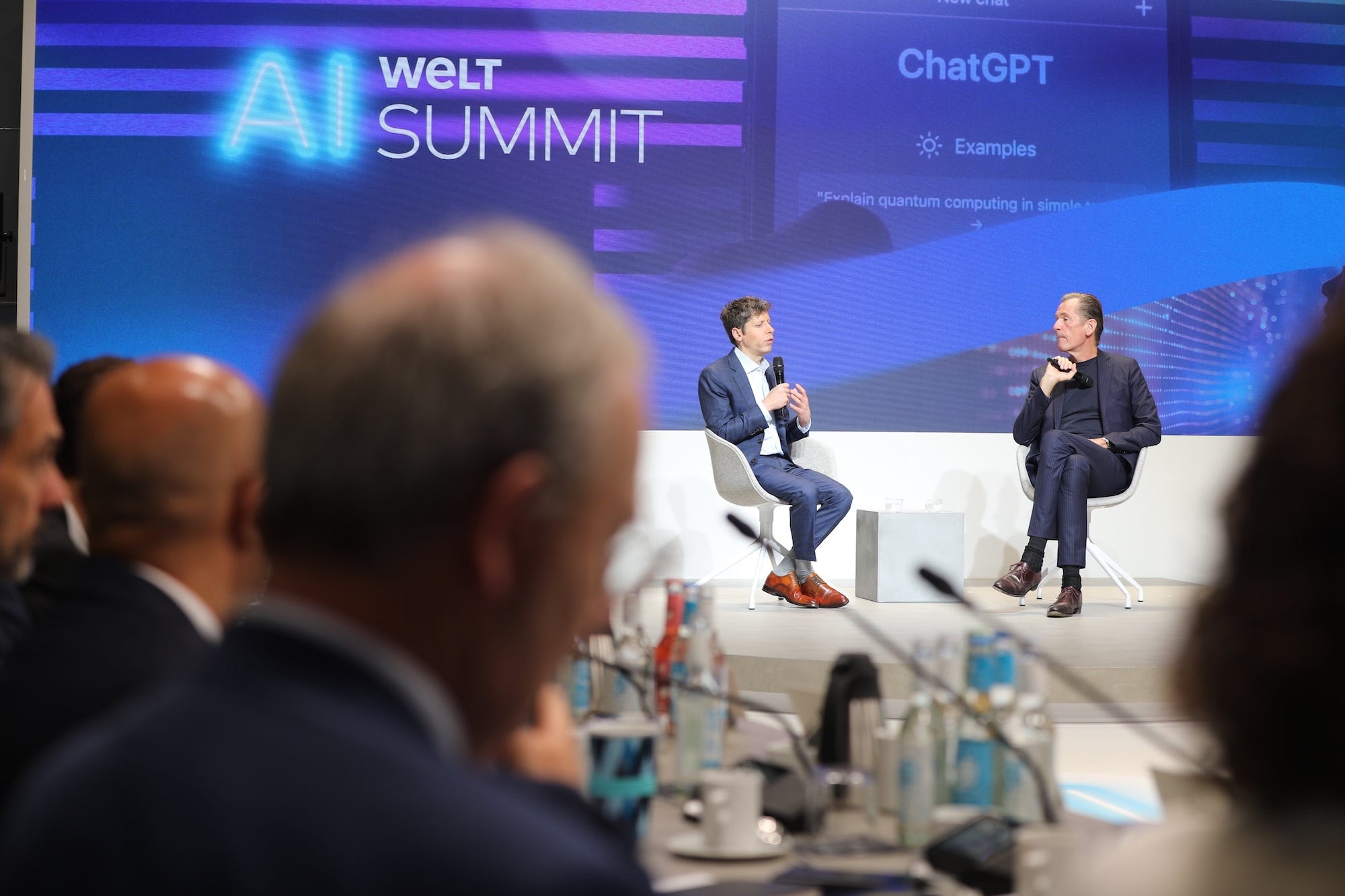
Jakob Hoff/Welt
Success! We talked about his meeting with the German chancellor and the changing visa policy back home.
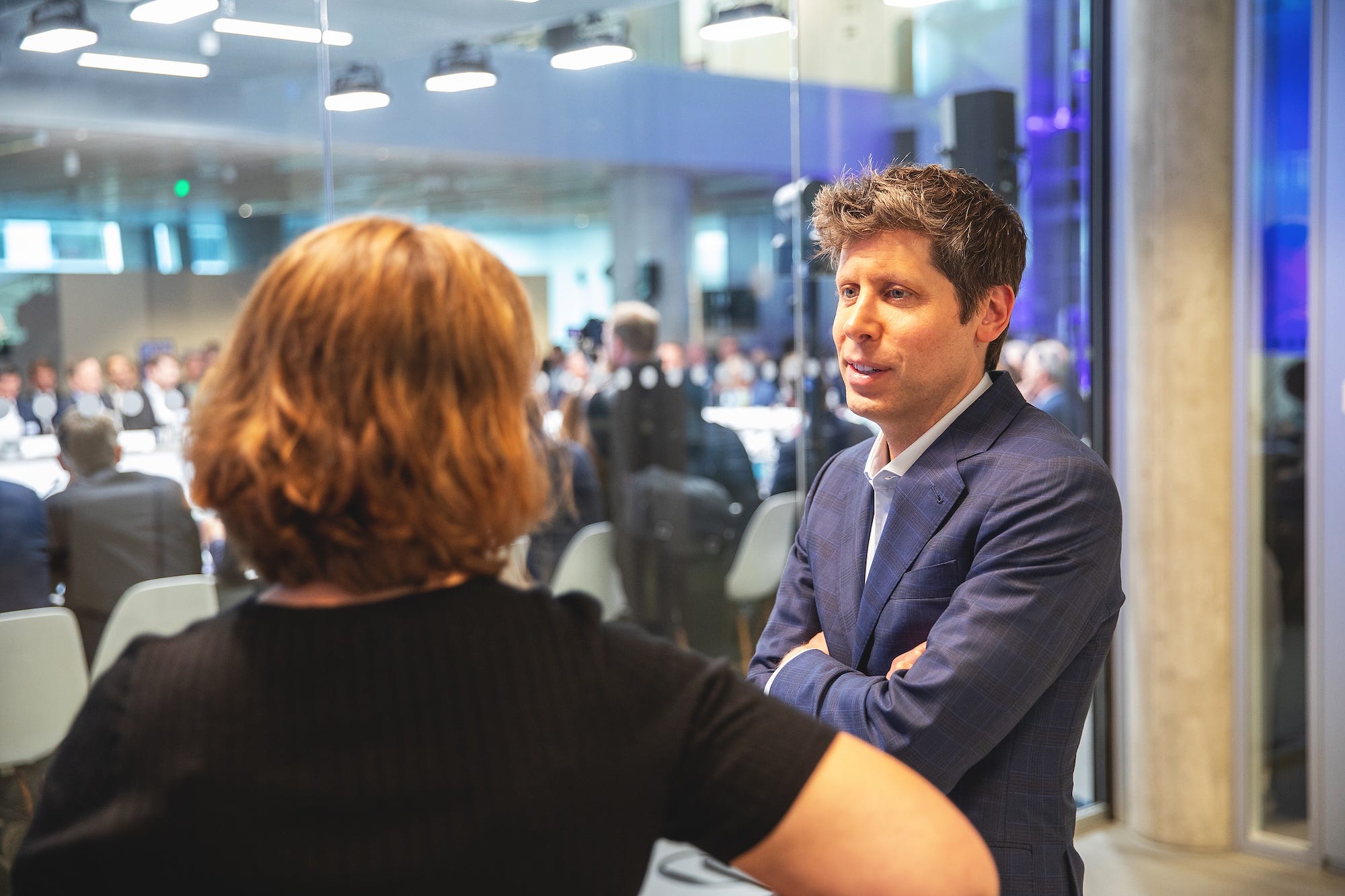
Jakob Hoff/Welt
Altman is a tough act to follow. Maybe that’s why organizers put Germany’s version of Elon Musk onstage next.
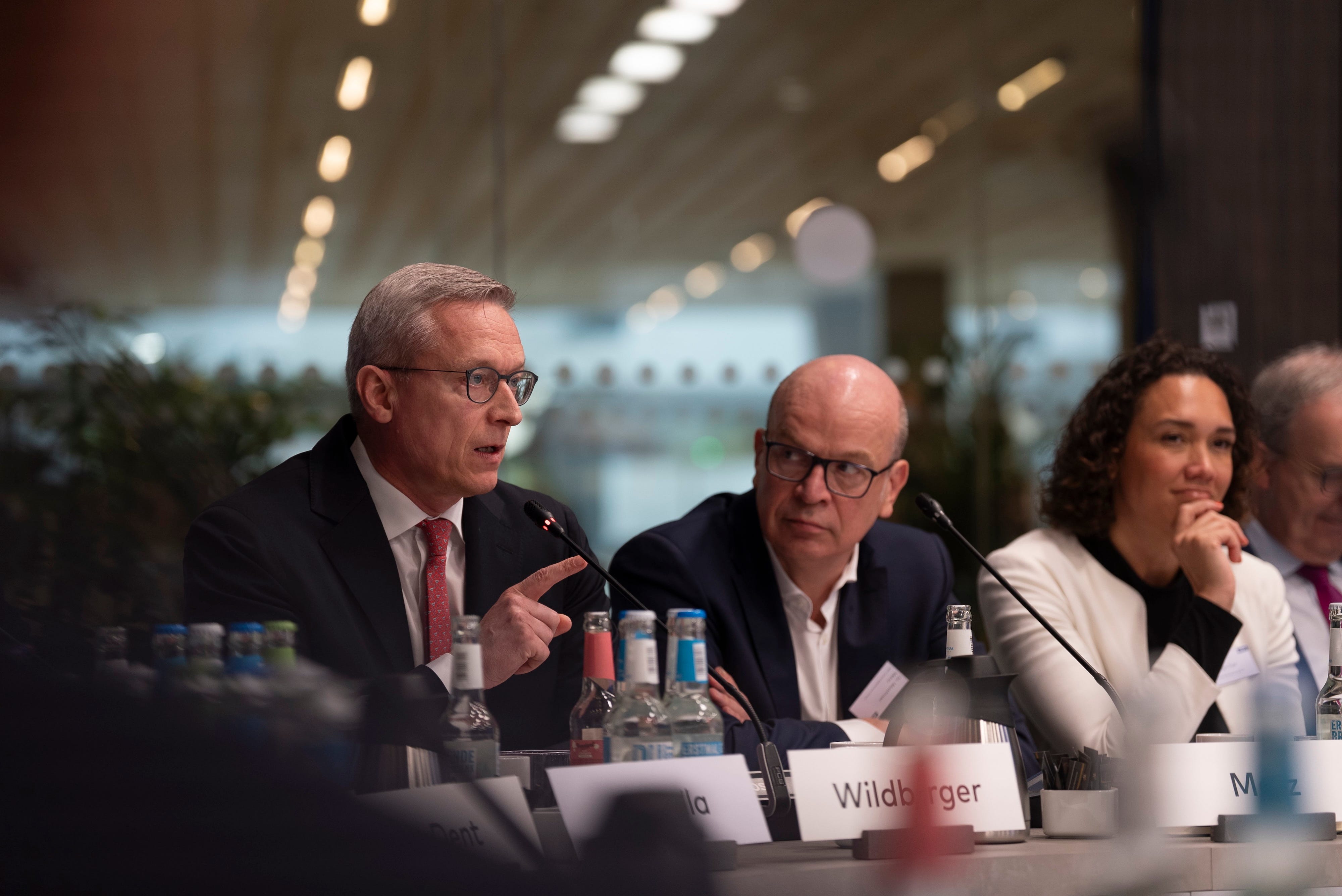
Dominik Tryba/Welt
Karsten Wildberger is Germany’s first-ever federal minister for digital transformation and government modernization. Think DOGE for Deutschland.
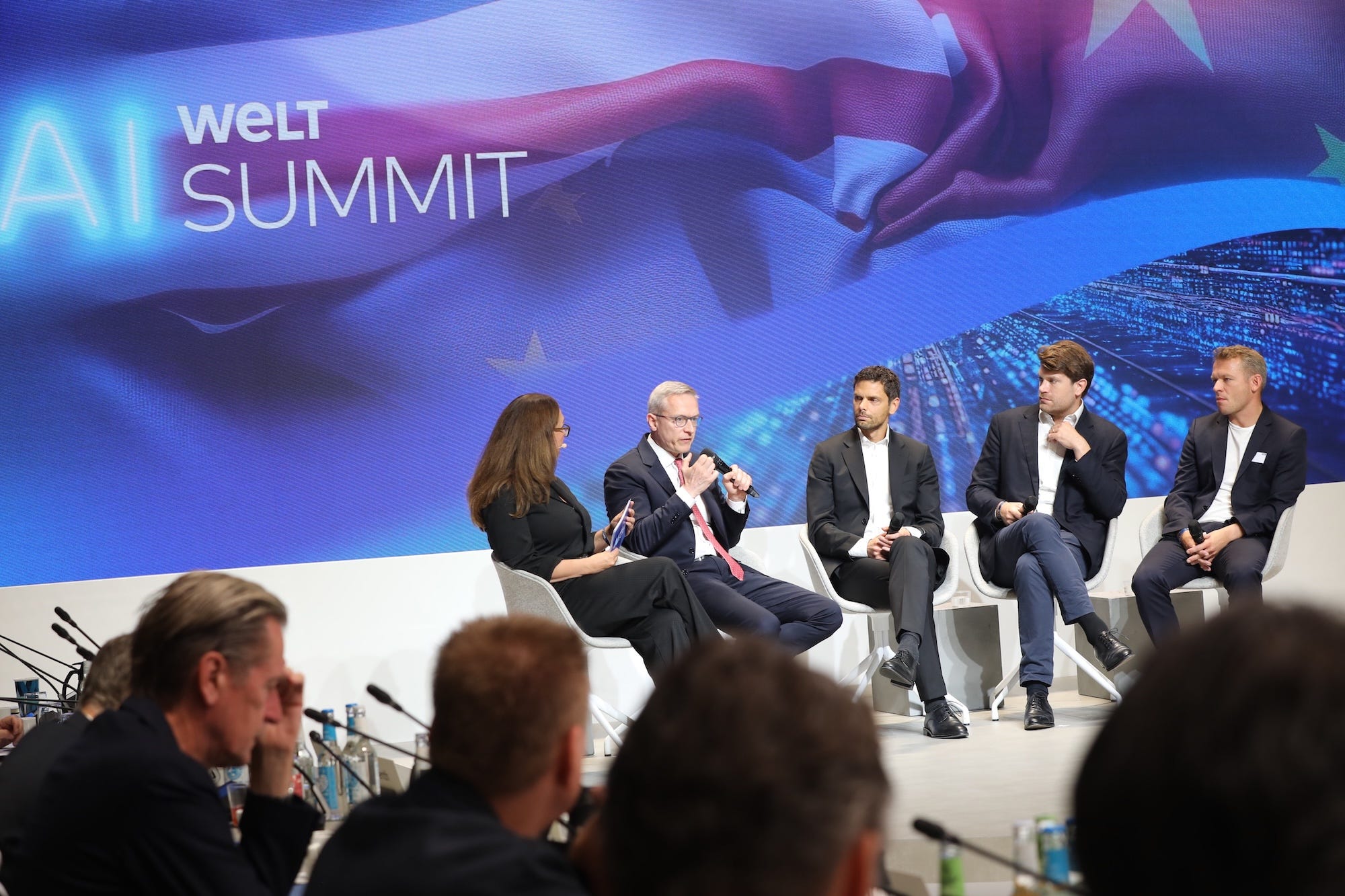
Jakob Hoff/Welt
He wants to scale back regulation. “We have to start to open up the gates and allow our companies to innovate much, much faster,” he said.
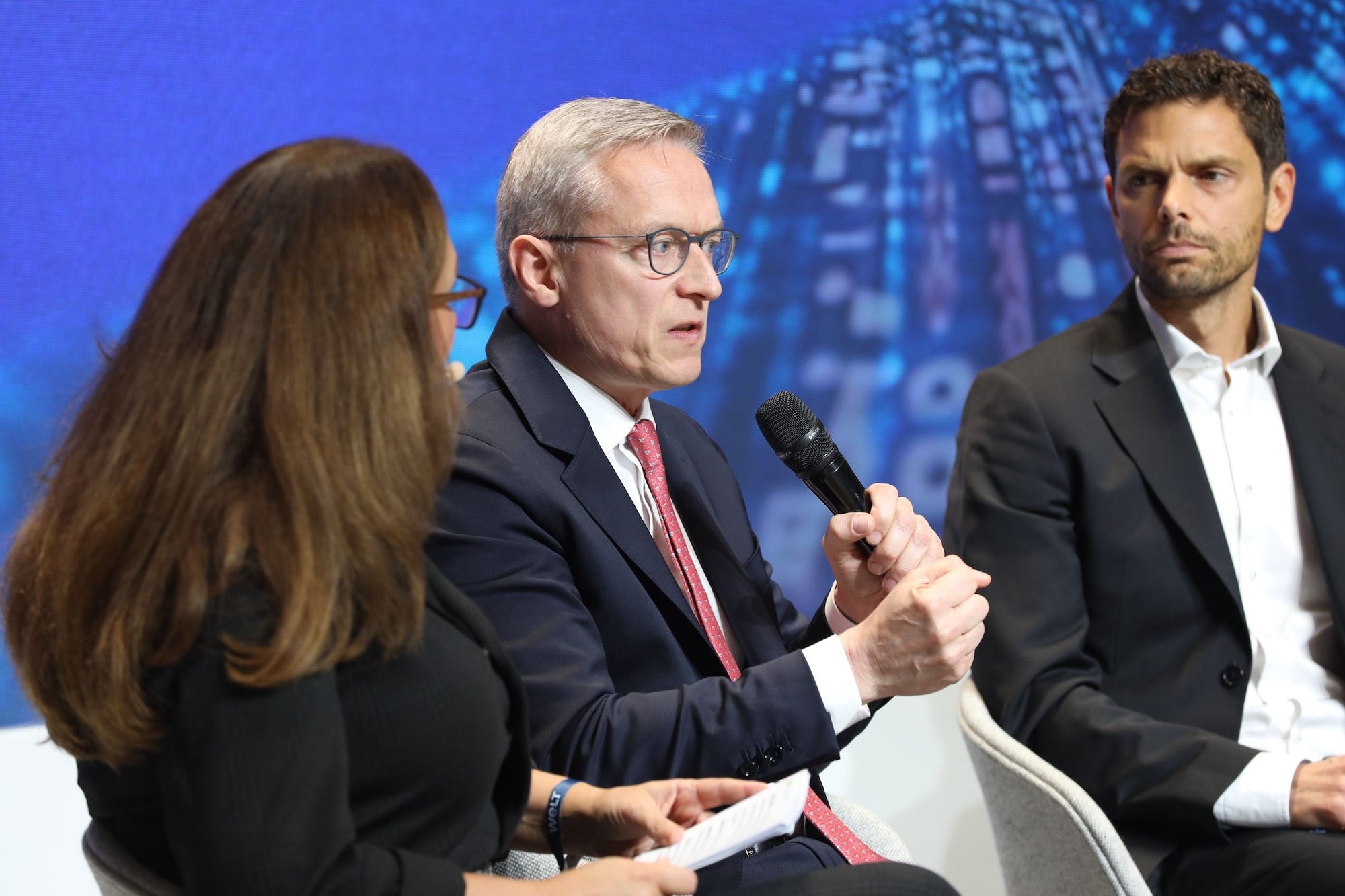
Welt
Deregulation became the battle cry of the day.
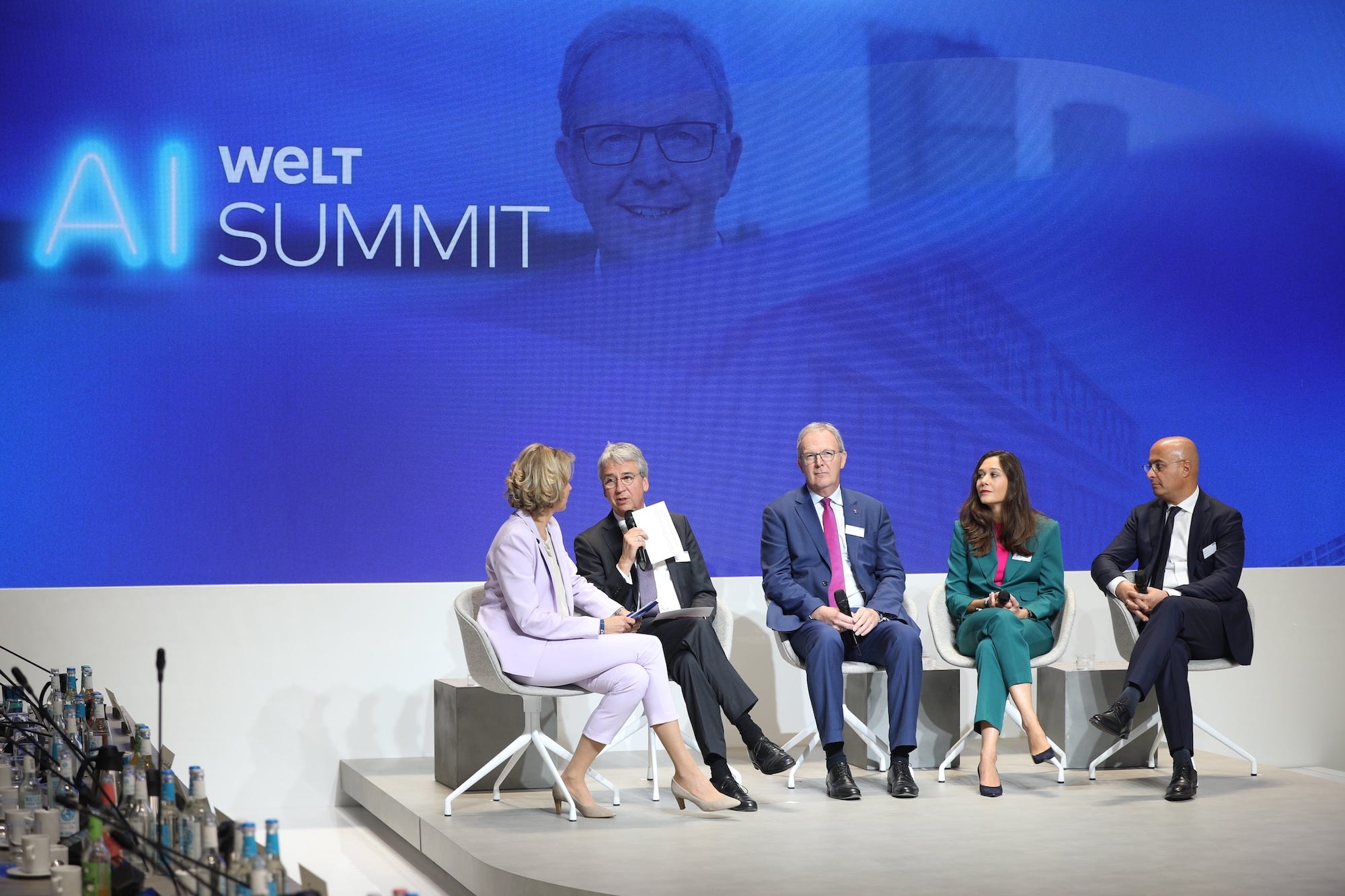
Jakob Hoff/Welt
Entrepreneurs and politicians asked how else they could jump-start Germany’s tech hub.

Jakob Hoff/Welt
One venture capitalist said Germany has an abundance of seed capital, but not enough growth capital to help startups scale. So they end up migrating to other countries.

Jakob Hoff/Welt
Richard Socher, a German-born founder who runs You.com, pointed out that venture capital translates as “risk capital” in German. He said this indicates that Germans often focus more on the downsides than the potential rewards.
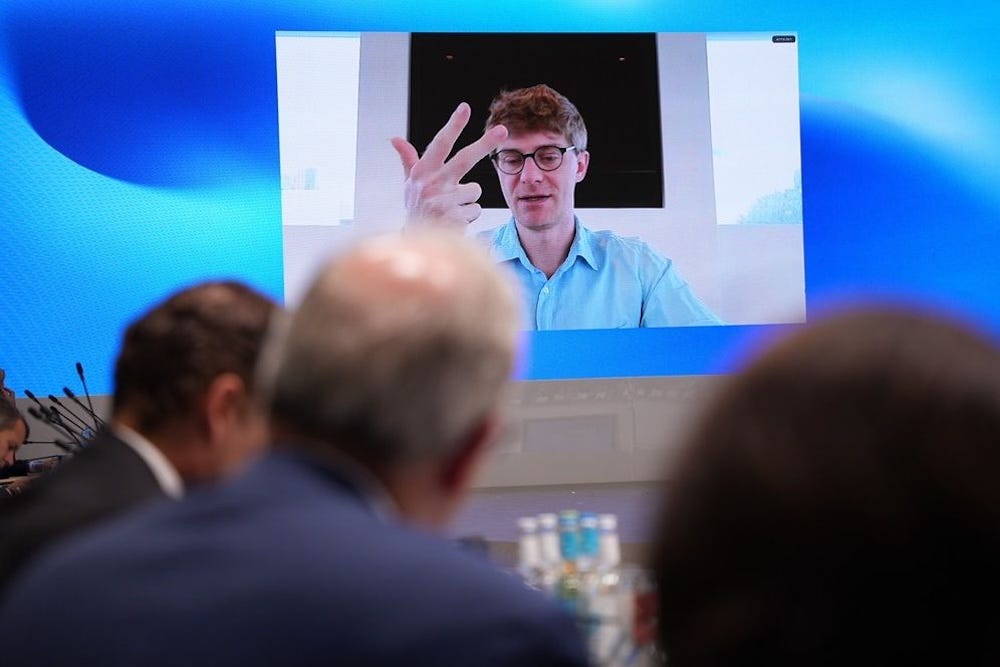
Welt
The last speaker gave the room a pep rally buzz more than a conference vibe.
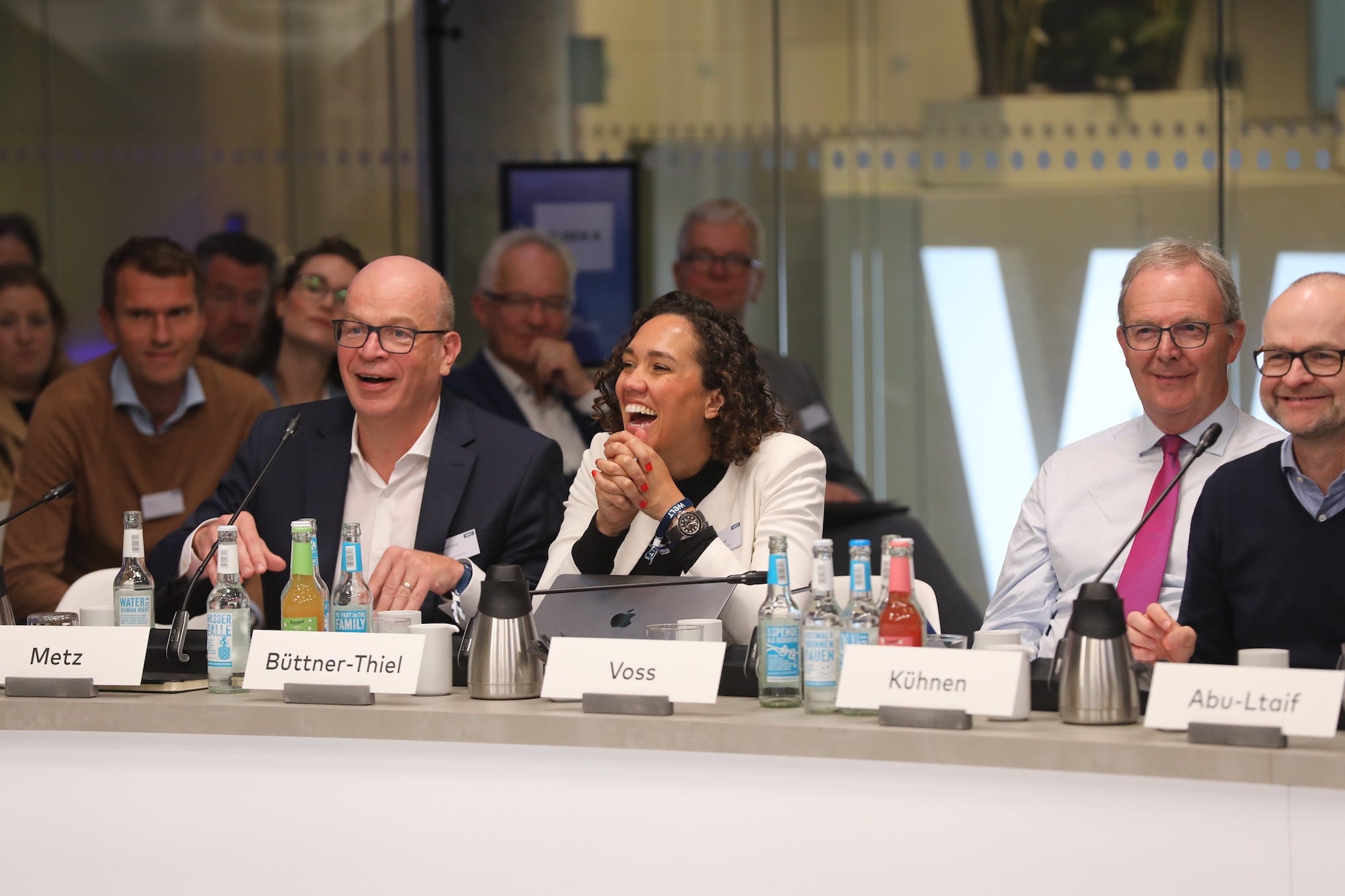
Jakob Hoff/Welt
Palantir’s Alex Karp dialed in to motivate the Germans. He cheered Germany’s focus on vocational schools and “a culture of industrialization that’s second to none.”
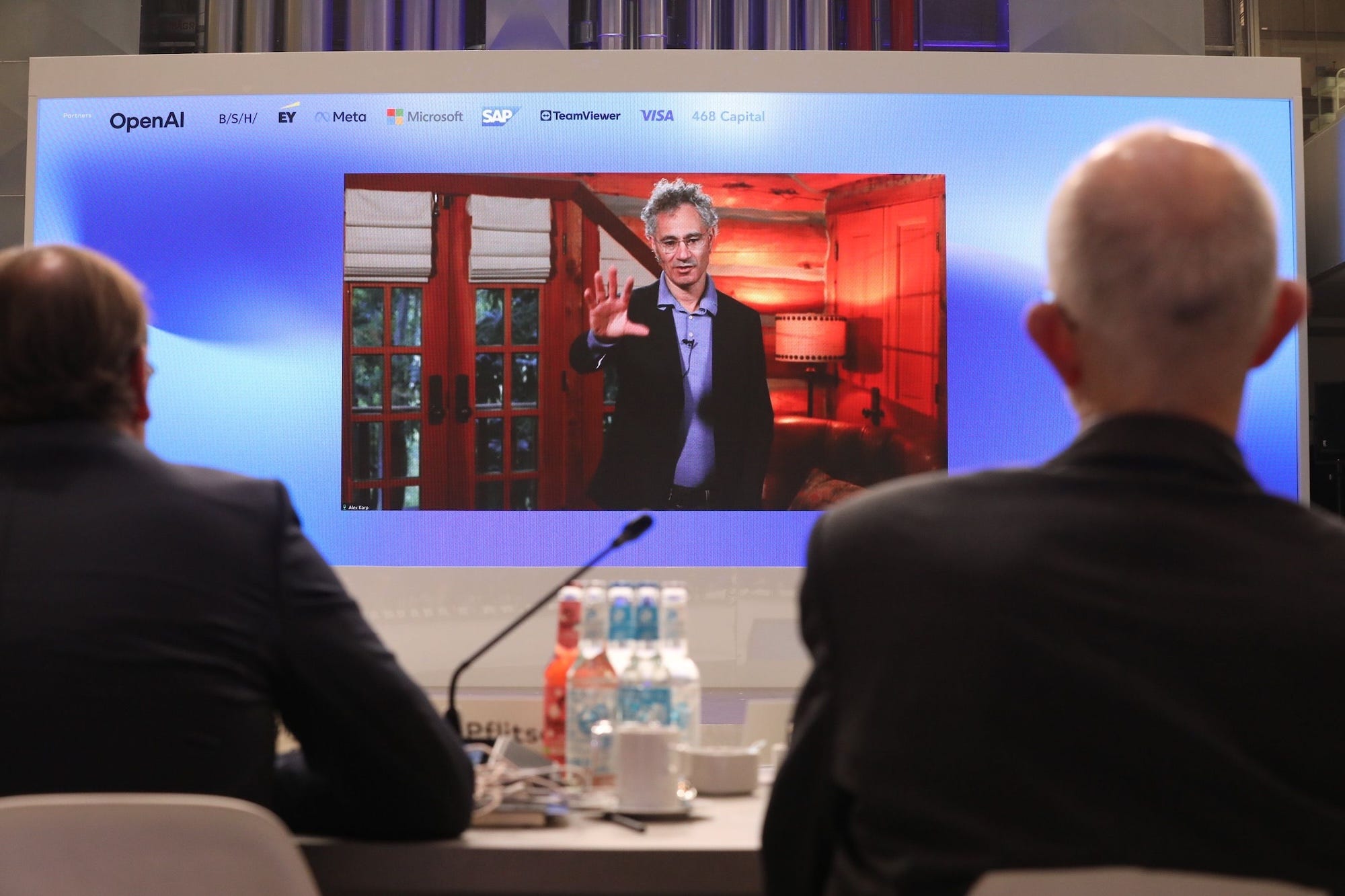
Welt
Karp, a fluent German speaker who studied at a university in Frankfurt, argued that Germany shouldn’t try to clone Silicon Valley but instead define its own model — one that draws on the country’s strengths and channels its native talent.

Axel Springer
“You’re not going to build Silicon Valley in Germany,” Karp said, “You’re going to build a German version.”
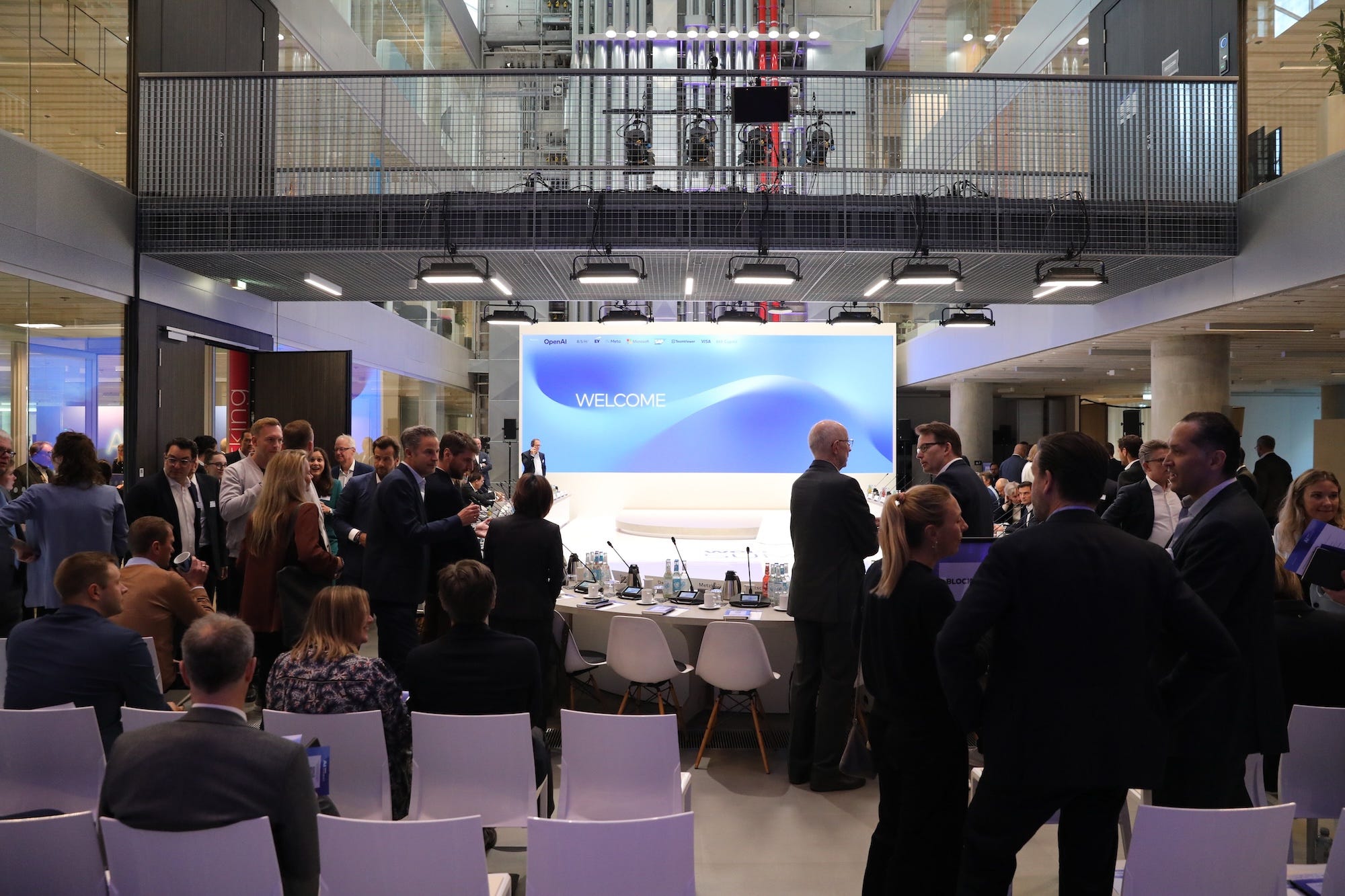
Jakob Hoff/Welt
Read the original article on Business Insider
The post I spent 2 days at Axel Springer’s AI summit. My takeaway was that Germany wants to fight like hell to stay in the AI arms race. appeared first on Business Insider.




